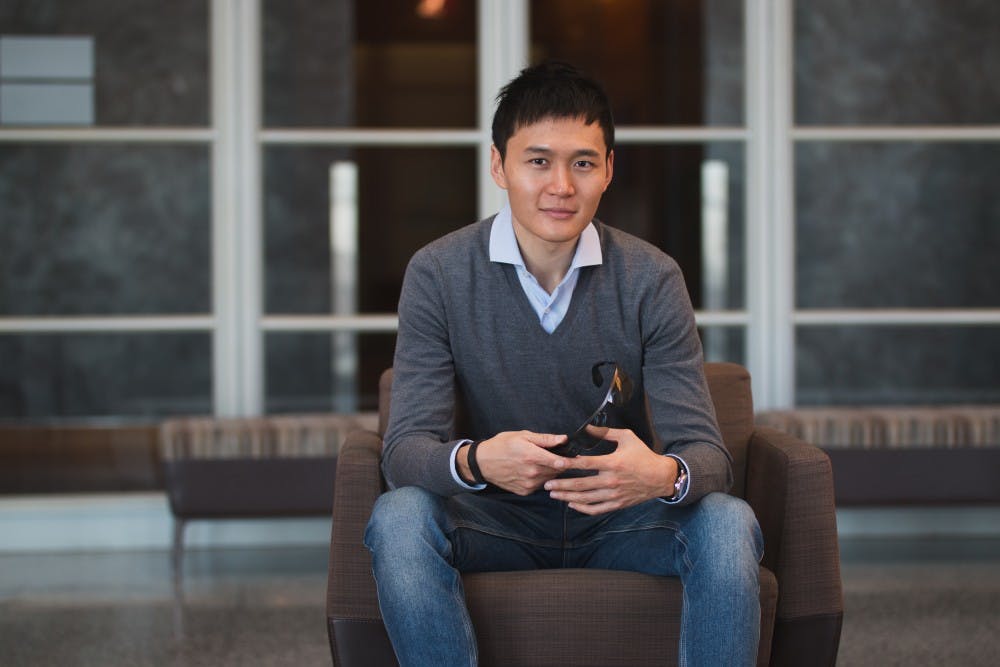Wharton MBA student Yuja Chang co-founded a startup that connects blind or low-vision individuals to live-trained professionals to provide hands-free assistance to blind individuals.
By wearing camera-equipped glasses, users share what they see with human "visual interpreters" who are connected through a built-in wireless connection. The sighted person then describes the users' surroundings and guides them through various tasks, however complicated.
The service, lauded by The New York Times as a “godsend” for visually impaired people, has received nearly $15 million in venture capital funding since its official launch in 2014.
Aira began as a side project between Chang, a 2017 Forbes 30 Under 30 finalist, and Suman Kanuganti in 2013. Together, they used Google Glass technology, which had just been released at the time. With the help of a friend and blind communications professional Matt Brock, the two began to brainstorm how the technology could be utilized to best serve blind individuals.
“There were already a lot of mobile apps that leverage artificial intelligence to support blind people,” Chang said. “So we thought, what if we add a human element to this? Instead of having a computer give directions, actual human beings could assist them.”
After trying out the technology with Brock, Chang realized the benefits of having human agents went beyond helping users become more mobile and independent.

“Blind individuals have relatively small social circles due to a lack of opportunities to meet new people,” Chang said. “By connecting them to human assistants, we would also be giving them a chance to interact with more people.”
RELATED:
These Wharton startup founders want to provide an alternative to student loans
At Yale, students use 'whisper networks' and Google Docs to combat sexual assault on campus
A total of 26 Penn graduates made this year's Forbes 30 Under 30 lists
He pointed out that a major part of the interactions between the user and the agent involves conversations about their daily lives, even picking up on previous chats.
The service currently has more than a thousand users who are assisted by about 60 agents. It is available in three packages: $300 for 750 minutes, $1,000 for 3,000 minutes and $2,500 for 10,000 minutes.
The process of becoming an agent is “pretty rigorous” due to liability issues, according to Chang. It involves a pre-screening, a phone interview, and a three-week training period.
Increasing accessibility to the service by partnering with various organizations is currently a priority for Aira, he said.
Aira is also partnering with major corporations. It is now an official partner of AT&T, which powers the hotspot network for users. It has also partnered with multiple U.S airports, including in Seattle, San Diego, Boston, and Houston. Recently, Aira partnered with Lyft to make transportation more accessible for visually impaired people.
Moving forward, Aira hopes to work with more public entities to support the service for even more blind individuals. Aira also works with schools like Harvard and Stanford to allow users to access the service for free within a given geo-fence. Penn is an organization Aira hopes to work with in the future as well.
“We are planning to reach out to the school, perhaps run a pilot and help create a more accessible campus for visually impaired students,” Chang said.



